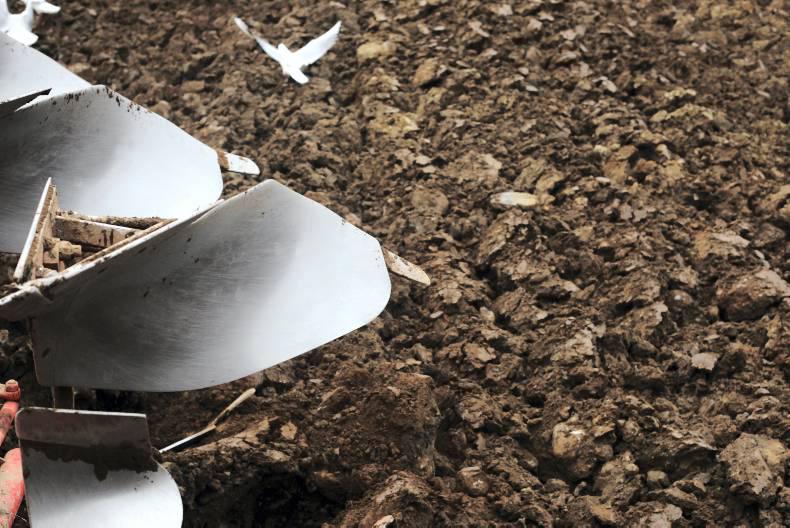Filling in the cashflow for March took just five minutes for tillage farmer Garrett. The only money that came in was €1,650 for contracting and just a few bills were paid. Another €2,000 that normally comes in for sowing did not, because the sowing is not done yet due to the weather.
Garrett owns 106 acres and rents an additional 166 aces. Like many tillage farmers, he does a bit of contracting as well. With poor price prospects again this year, he is looking seriously at the direction of his business. In February, Garrett actively chased down money he was owed for straw and contracting. It wasn’t easy, but he brought in €9,600.
“I am up to date on the contracting bills for the first time in a long time,” said Garrett. He is taking a new approach to contracting work. “I am only taking on work for which I know I will get paid quickly and make money on.”
Armed with the new laptop, he prints out an invoice after the work and sends it straight away. He will then follow it up in a month’s time if he has not got payment. “I realised I have to treat it as a separate business. Otherwise you are just wearing out your own machinery, which will have to be replaced quicker,” he said.
He was expecting €7,000 from a VAT refund in March but when he rang the accountants he found out they hadn’t sent out the form. It’s a mistake that left a big hole in the cashflow. “I was alright in March but, with land rental to be paid in April, I had to take money out of the family savings account to pay it. I did not want to upset the owner,” said Garrett. He will replace the funds when the VAT repayment comes in.
Just €1,290 went out, mainly for repairs and maintenance. This is because he is using merchant credit for all the crop inputs. Garrett used two merchants to get better deals last year. It also helped this year when he did a good deal with one for seed and fertiliser. “As part of that deal they are looking for payment for the winter crops in May,” he said. He normally takes out a stocking loan of €40,000 to keep the current account below the overdraft limit and will do so again.
The loan repayments of €1,144 for machinery came out as expected. Drawings at €1,880 was higher than budgeted because of a school trip that had to be paid for. So looking at March just €1,650 came in and €4,330 went out, leaving a deficit of €2,680. The budget was a positive inflow of €7,844. The swing of €10,500 was mainly due to the VAT refund and the lower contracting. “I was not concerned as I know these should come in during April,” he said.
Looking at the first three months, just €15,000 came in – €5,000 less than budgeted for. Direct farm costs were €3,300, some €2,660 lower than planned. Overall, expenditure was around €14,000 higher, although €8,000 of this was a loan repayment due in December and paid in January. If you exclude this payment, the net cashflow comes in at -€5,000 compared with a budgeted €6,297. The hole left should be partly filled in April, but with no sales it will be another negative month.
“The current account is in overdraft and I will not have a positive cashflow until August. But at least I knew this before I started,” said Garrett.
He continued to say no to rented ground this spring based on the figures. Apart from some spring barley, all the other crops are looking well and he is up to date on them apart from the sowing. This has allowed him to take more work off the farm. “It is helping cashflow but more importantly, given the doom and gloom in farming, it allows me to clear my head when I am out working,” said Garrett.
He is using the cashflow challenge to measure the profitability of each crop. “We have set the course of the business this year so will sit down after harvest to see if we really need to make major changes,” he told me.
This might involve sowing just winter crops to allow him work off-farm in the spring.
Garrett has leased in entitlements for spare land that he rented. They were worth just over €200 and he got them for 50% of the value so it will reduce the rental for the land. “More importantly, I did the deal so I do not have to pay the money until the payment comes in, so it is not hitting cashflow,” he told me. Garrett has not forward sold any crops. “I looked at it but there is no point at selling at current prices at a loss. If prices move up I will look at it again,” he said.
Cashflow challenge
Business Sense has focused on the importance of cashflow since last October. We are following six farmers – three dairy farmers, a suckler and sheep farmer, a beef farmer and a tillage farmer. They committed to do a cashflow budget for the year ahead and fill out the actual money in and out of their account each month. We also asked other farmers to sign up to the cashflow challenge and many have. So if you want to set farming goals, make more money and improve your financial skills in 2016, why not sign up? Go to www.farmersjournal/businesssense. You will be emailed the farmers’ actual cashflow and monthly tips on how to complete yours.






 This is a subscriber-only article
This is a subscriber-only article










SHARING OPTIONS: